As a music producer or artist, understanding and capitalizing on music marketing isn’t just vital, it’s transformative.
And luckily, we’re breaking down everything you need to know about music marketing so you can successfully promote your music and gain new loyal fans.
This essential guide will help you navigate this vast and often complex landscape 一 offering the knowledge and tools needed to blow up your music and build your brand.
But more than anything, it unlocks a world where your music and success coexist.
Today, we’ll be going over how to:
- Understand the music business ✓
- Craft compelling marketing strategies ✓
- Amplify your music ✓
- Make the most out of social media sites ✓
- Create captivating content ✓
- Connect with your fanbase (and gain music fans) ✓
- Master email marketing campaigns ✓
- Press kits, ads, streaming platforms & media outlets ✓
After this article, you’ll be armed with the knowledge to get your music out there and start getting it the attention it truly deserves.
Usually, we cater strictly to music producers, but artists can also benefit from this article in a major way.
Let’s dive in…
Table of Contents
The Music Industry & You
Let’s start off by breaking down the intricate workings of the music industry.
A clear understanding of its dynamics will serve as your compass as you venture into the realm of music marketing.
-
Understanding the Music Business
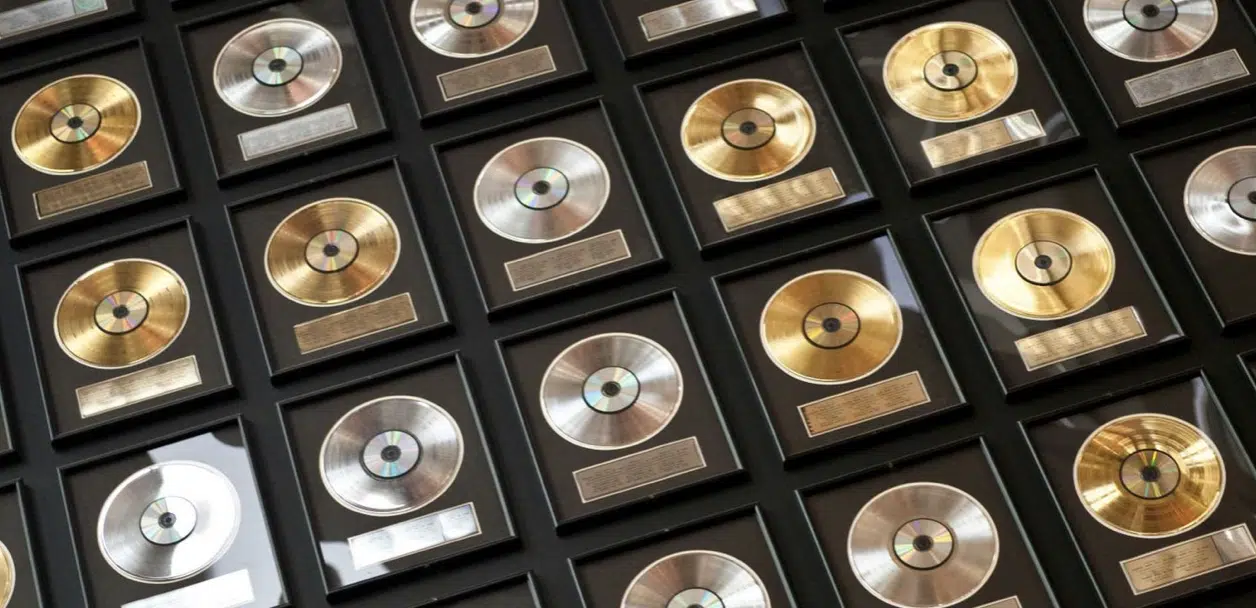
As a music producer or artist, navigating the complex landscape of the music industry is crucial.
As you create your own music, understanding how the business works will allow you to monetize your talent effectively and build a successful music career.
Just remember it’s not just about creating beats and mixing tracks…
It’s all about understanding how the market works, who your target audience is, and how to reach them.
The music industry, despite its constant evolution, still has established structures and norms that influence the success of music producers.
This includes:
- Knowing how to work with record labels
- Understanding the value of copyright and royalties
- Deciphering different contracts
As the industry shifts more into the digital age, it’s important to stay updated on these changes.
Remember, every single piece of music you produce has potential value.
Treat each beat, each track, and each album as a business asset.
Understand the various revenue streams that can be derived from your music 一 including sales, streaming revenues, synchronization licenses, and performance royalties.
Finally, always protect your work.
Understand copyright laws and register your music with the appropriate performance rights organization.
This way, you ensure you’re paid whenever your music is used commercially.
-
Launching Your Music Career
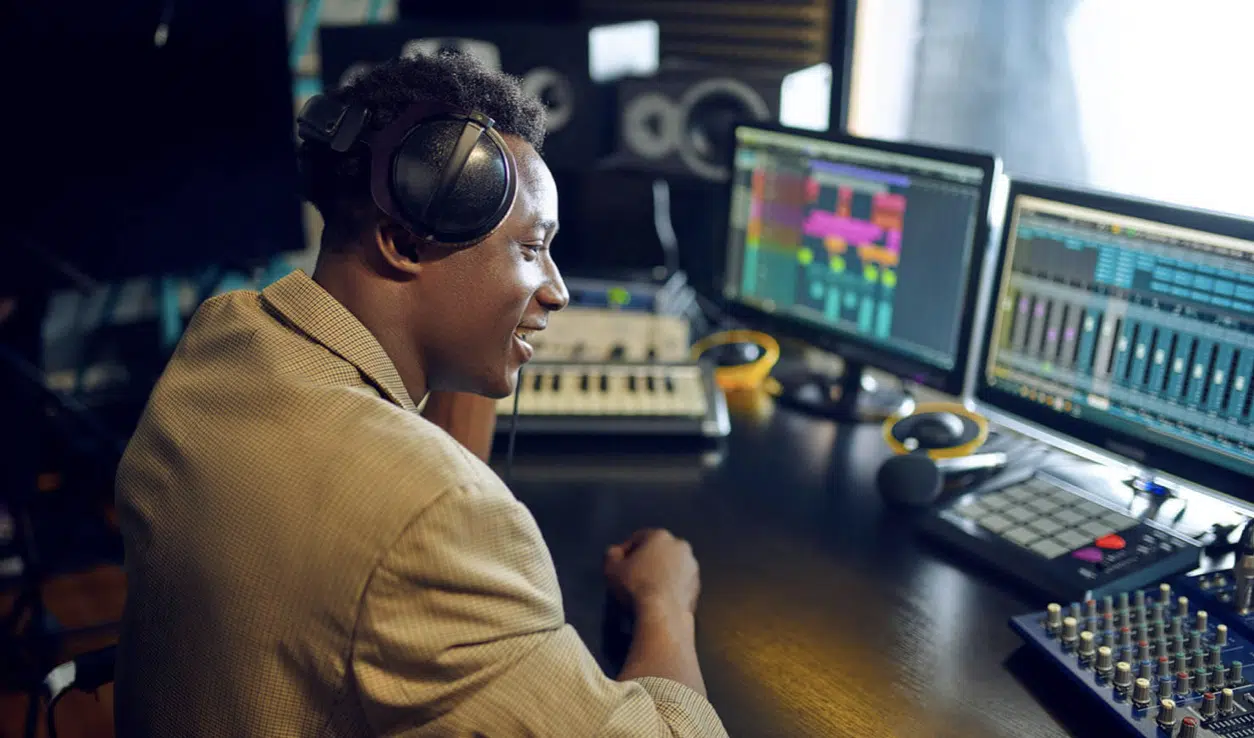
Your music career isn’t something that just happens overnight.
It’s a journey that starts with a passion for creating music and evolves into a full-blown venture that requires time, effort, and a well-devised music marketing strategy.
#1. Define your brand.
Your brand is what sets you apart from other artists.
It’s the essence of who you are as an artist and what you represent.
This includes:
- Your personal image
- Your signature sound
- Your overall values
- Even your name
A well-defined brand makes it easier to connect with potential fans and creates a lasting impression.
#2. Invest in high-quality production and recording.
In today’s music business, you’re not only competing with other local artists but also with global stars and their big-label resources.
You need to make sure your music stands out in a major way.
Luckily, there are many tools and resources available online to help independent artists produce high-quality music.
#3. Networking is also a key aspect of launching your music career.
Connect with other artists, music producers, record label executives, and anyone else who might help you move your career forward.
Attend industry events, join online communities, and don’t shy away from collaboration.
#4. Promote your music relentlessly.
With the power of social media platforms and the internet, there are numerous ways to get your music heard by the masses.
From music videos to live gigs, every opportunity to promote your music should be seized.
Make sure to create social media accounts across the board and stay active!
They will essentially serve as your marketing platform.
Decoding the Music Marketing Campaign
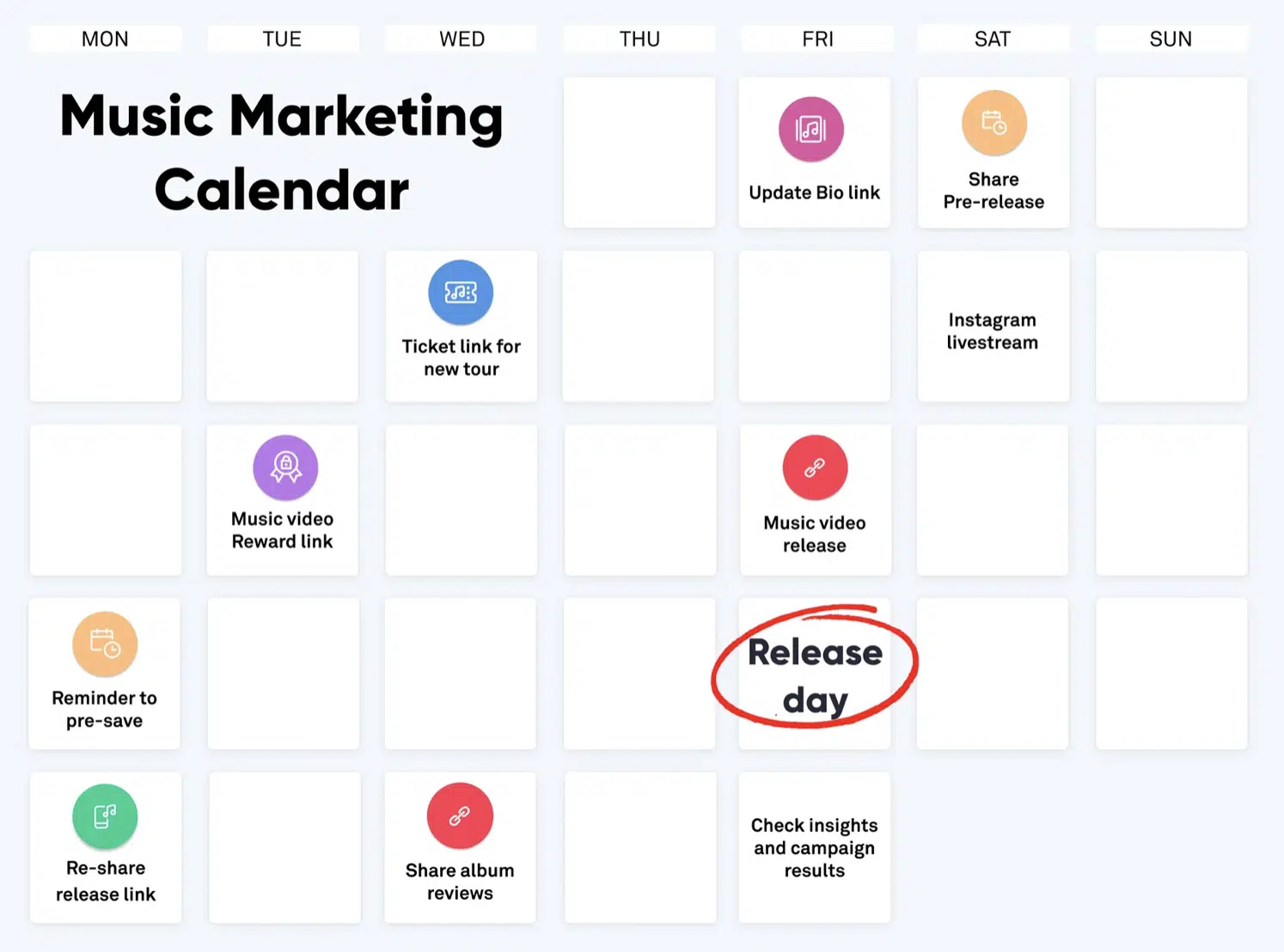
Every beat drop, every lyric penned down, every tune you hum, and every song you produce needs an audience.
That’s where a music marketing campaign comes in.
It’s a coordinated effort to promote your new music to your target audience using various marketing strategies.
An effective music marketing campaign begins with setting clear and achievable goals.
Are you aiming to increase your fan base, get more streams on Spotify, or perhaps even land a record deal?
Defining your goals upfront will guide your strategy and help measure your success.
A music marketing campaign also requires a deep understanding of your target audience.
Meaning, you have to ask yourself:
- Who is my target audience?
- What kind of music do they listen to?
- Where do they hang out online?
- What will capture their attention?
Answering these questions allows you to tailor your campaign to reach the right people in the right places.
With the right message, you can engage potential fans and successfully turn them into loyal supporters of your music.
This is especially true when it comes to email marketing campaigns.
In the music industry, the role of an efficient music marketer can’t be overstated.
These individuals understand the music business and use this knowledge to create effective strategies for getting your music heard.
Whether you’re self-managed or working with a marketing manager, the principles remain the same.
Building a Powerful Music Marketing Strategy
Now that you’ve got a handle on the industry basics, let’s delve into making your music shine: the music marketing strategy.
Here’s how to build it…
-
Traditional Marketing Strategies vs Digital Marketing Strategies
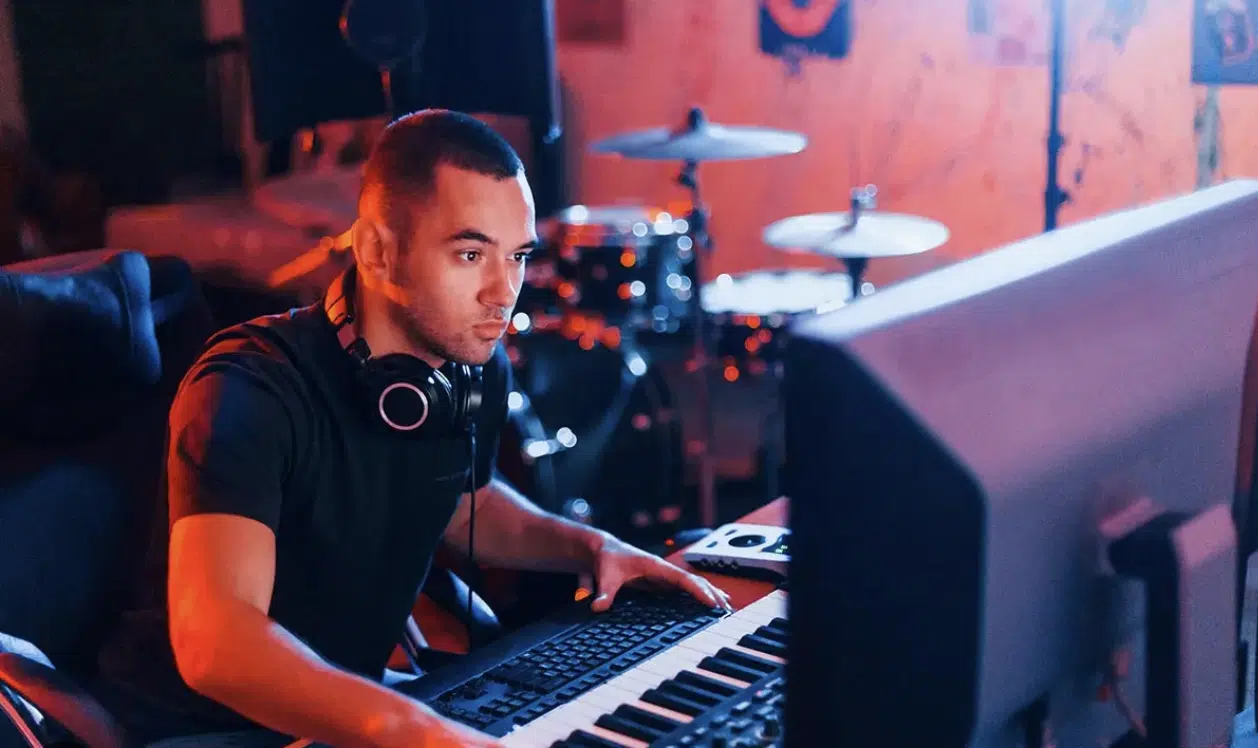
Whether you opt for traditional or digital paths, a well-constructed strategy will be the key.
- Traditional music marketing strategies such as radio promotions, print ads, and touring, are still relevant in today’s music business.
- Digital marketing strategies, leveraging social media posts, email marketing, streaming platforms, and youtube videos are becoming increasingly dominant.
All of these things can each individual serve as a different (and beneficial) marketing tool.
Radio promotions, despite the shift to digital, remain a powerful way to reach new audiences.
Although getting your song played on major radio stations can be a challenge, local and independent stations are often more open to playing music from upcoming artists.
Print ads, although less common today, can still be beneficial.
These can include flyers for live gigs, posters, and even album covers.
They offer a physical, tangible way to reach potential fans and can be especially effective for local promotions.
In contrast, digital marketing strategies/social media marketing strategies leverage the internet to reach a global audience.
Social media marketing allows you to:
- Engage with fans
- Share new music
- Give behind-the-scenes peeks into your music-making process
Email marketing, when done right, can be an effective way to keep your fans updated with new releases, tour dates, and other exciting news.
-
Essential Components of a Marketing Strategy
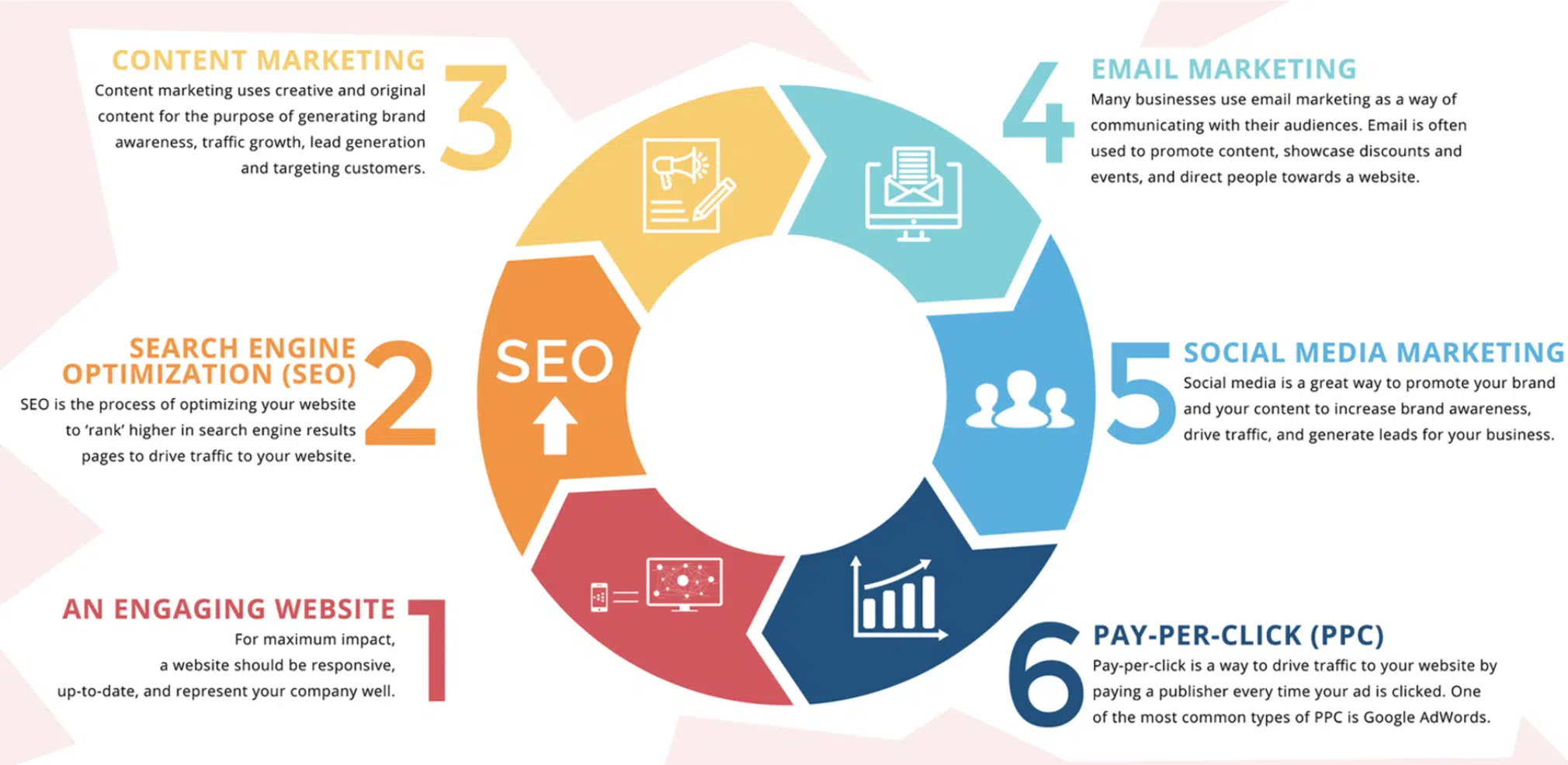
An effective music marketing strategy isn’t built overnight.
It’s a combination of several key components, carefully orchestrated to achieve your goals.
#1. A clear understanding of your target audience is essential.
By knowing who your audience is and what they enjoy, you can tailor your music and promotional efforts to match their interests.
#2. A well-defined brand is crucial.
Your brand, which includes everything from your addicting music to your image, is what differentiates you from other artists.
It’s what makes you memorable in the minds of your audience.
#3. Fire music is, of course, key.
But it’s not enough to produce great music 一 you also need to present it well and professionally.
High-quality music videos, album covers, and promotional materials all play a role in attracting and retaining fans.
#4. Constant engagement with your audience is vital.
This can be achieved through social media, email newsletters, and even ‘live’ performances.
Keeping the lines of communication open with your fans not only strengthens your relationship with them but also helps to keep you in their head.
Techniques to Get Your Music Heard
We’ve touched on the framework of your potential marketing strategy, but how can you put it into action?
Well, let’s dive into the visual power of music videos and the limitless possibilities of music online.
-
Harnessing the Power of Music Videos
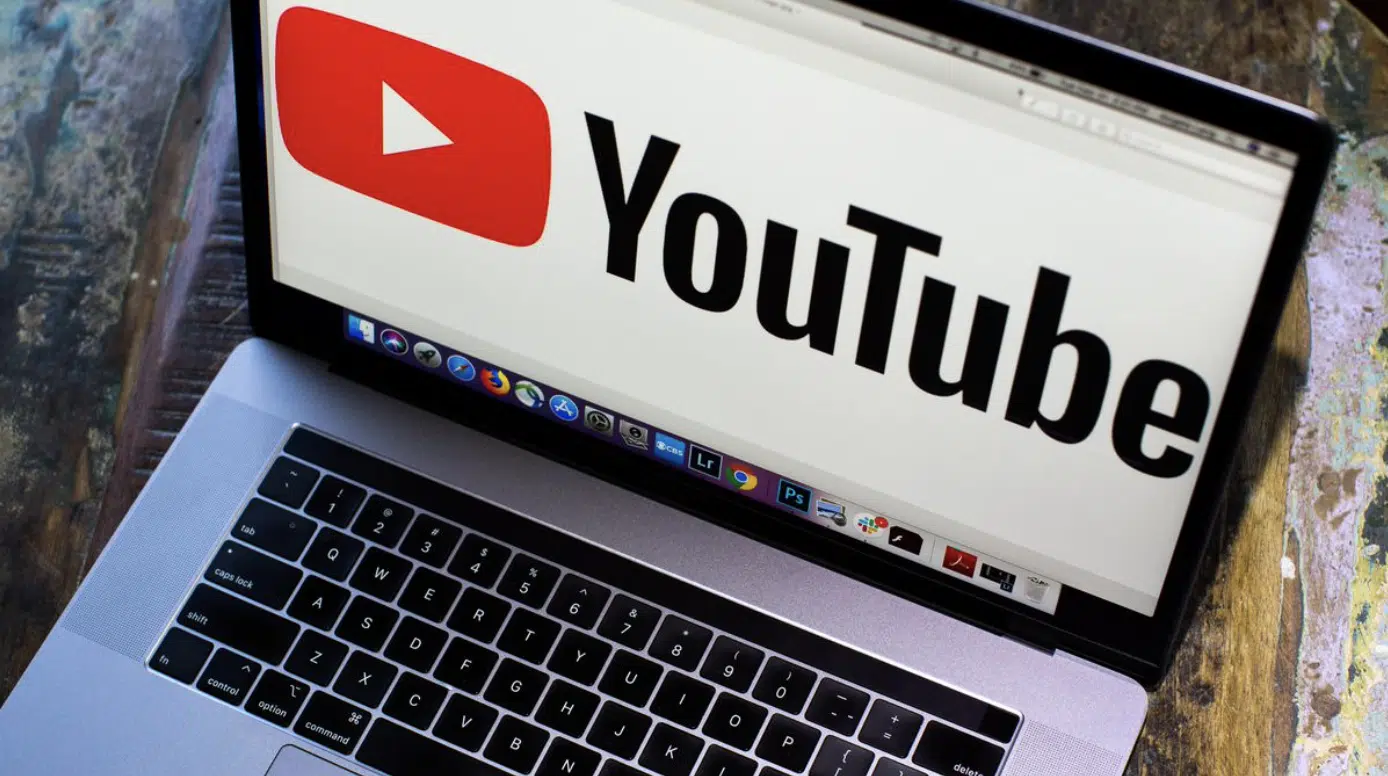
Music videos have transformed from being mere promotional add-ons to an indispensable aspect of a music producer’s project portfolio.
They offer a visually appealing interpretation of the track you’ve produced.
As well as create an additional layer of intrigue with the listeners.
In this digital era, a well-executed music video possesses the power to become an internet sensation 一 capturing the attention of millions globally in an incredibly short period.
The video can be disseminated across multiple platforms (like YouTube & other social media channels) thereby extending your reach beyond the existing listener base.
The secret to an impactful music video doesn’t necessarily lie in an extravagant budget, but rather in innovative concepts.
Whether you’re working on a high-budget, cinematic-style video or a more minimalistic indie project, the ultimate goal is to stir emotions with your music.
And produce a lasting impression on the viewer’s mind.
As a beatmaker, you can even put your beats behind an intriguing (or super popular) video, in order to further get it out there and gain attention.
-
Exploring Music Online

The advent of the internet and the proliferation of digital platforms have made it easier than ever for artists to reach a global audience.
Leveraging these platforms effectively is the true key to getting your music heard.
Streaming platforms have become the go-to place for music discovery, like:
- Spotify
- Apple Music
- Amazon Music
- SoundCloud
- Deezer
- Other platforms
Ensuring your music is on these platforms increases the chances of it being discovered by potential fans.
In addition to this, these platforms also provide analytics that can help you understand your audience better.
Music blogs and review sites are another avenue to explore.
Getting your music reviewed by a respected music blog can increase your credibility and exposure.
Research blogs that cater to your genre of music (pop, lofi, hip-hop, trap, etc.) and reach out to them for a review.
Lastly, consider joining online music communities, affiliate programs, and forums.
These platforms offer a chance to engage with like-minded individuals and potential fans.
They’re also a great place to seek feedback on your music and improve your craft.
Social Media: Your Golden Ticket
At this stage, you’ve got killer music and a strategy to back it up.
But where does social media come into play?
As your golden ticket to audience connection and expansion, understanding the impact of social media platforms on music marketing is crucial.
Let’s unpack its power.
-
The Impact of Social Media Platforms & Music Marketing
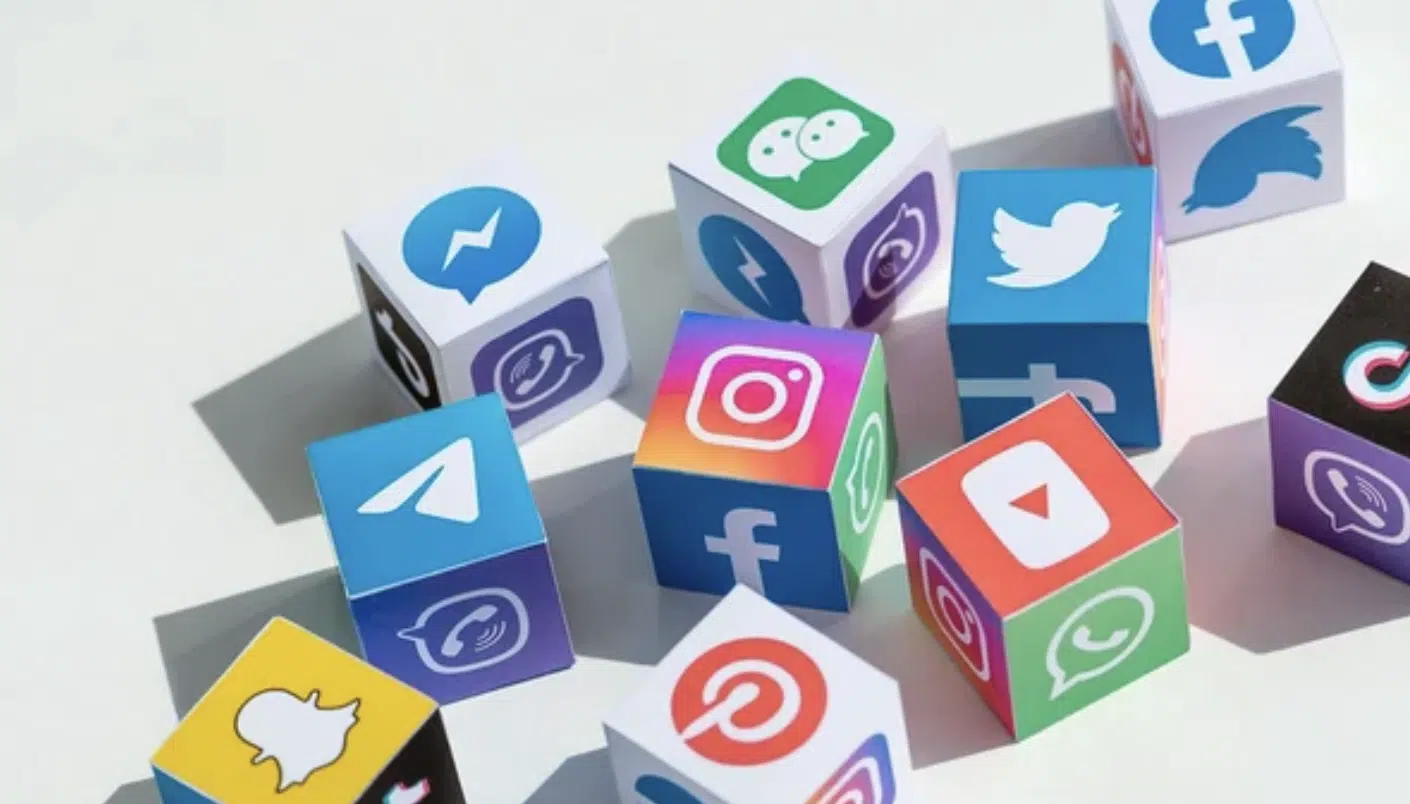
Social media has revolutionized music promotion and the music marketing game 一 allowing artists to reach and engage with fans directly, without intermediaries.
Each platform has unique features that can be leveraged to maximize your reach and engage with your audience.
Platforms like Instagram and TikTok, which prioritize visual content, are great for:
- Sharing music videos
- Behind-the-scenes footage
- Promotional images
They also allow you to experiment with short-form content.
Which can, oftentimes, have higher engagement rates and really get people interested.
Whether it’s your first song or 100th song, making a video with a small clip of it can be insanely beneficial.
In fact, most new songs first blow on sites like these before hitting the radio stations.
Facebook and Twitter, on the other hand, are great platforms for sharing updates, linking to new music, and communicating directly with fans.
Facebook’s event feature can also be used to promote live gigs and future tours.
YouTube stands alone as the premier platform for sharing music videos.
It also allows for longer-form content, like behind-the-scenes videos, vlogs, and even live streams.
When it comes to music marketing, a marketing tool like TikTok or YouTube can go a long way.
-
Creating Captivating Content
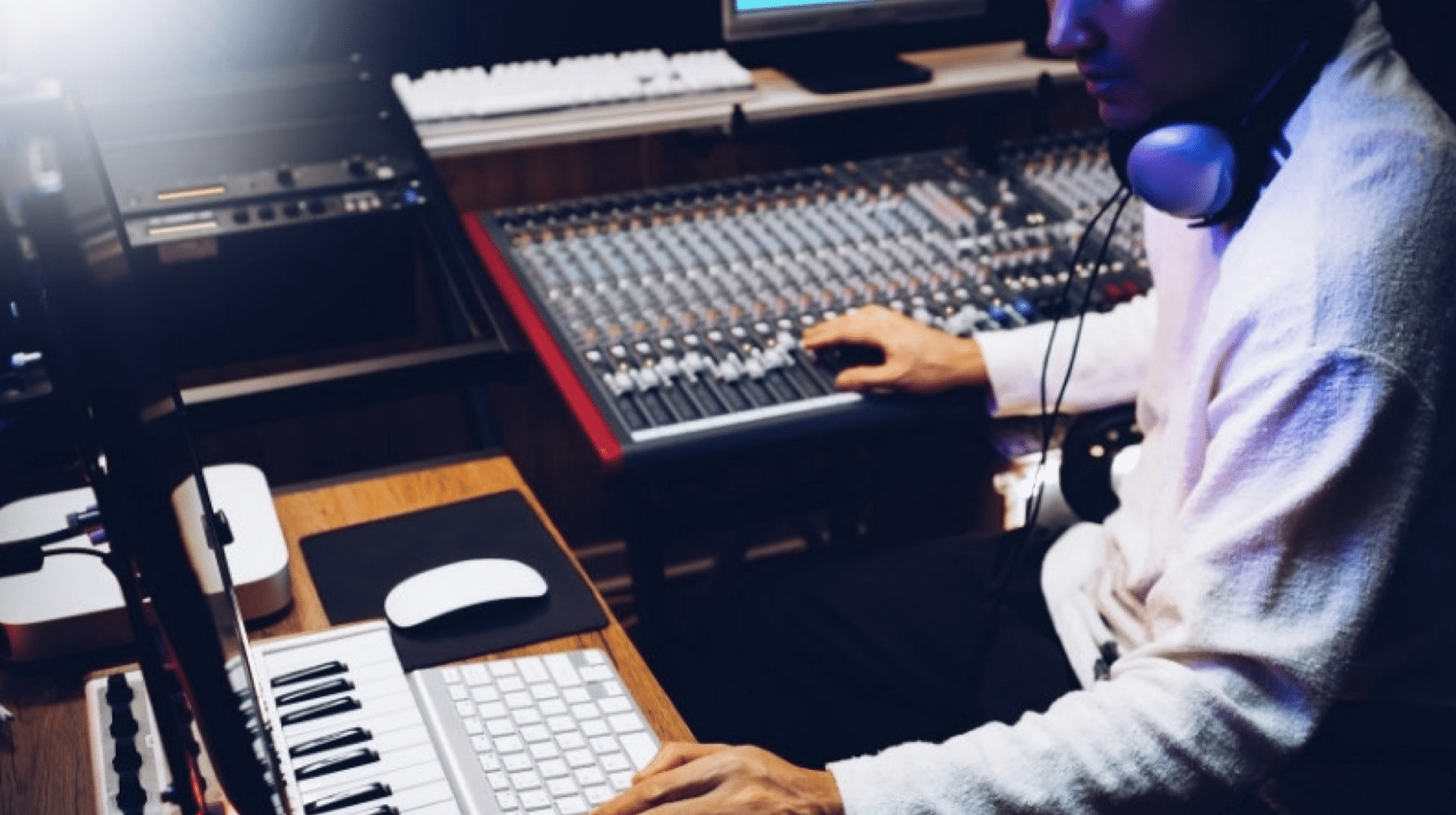
In the realm of music marketing, video content is a powerful tool.
With the rise of platforms like YouTube, Instagram, and TikTok, it has become essential for artists to leverage this medium effectively.
Videos allow you to create an immersive experience for your fans, which can help forge deeper connections.
It’s not just about music videos, make sure to consider:
- Live performances (or beat-making sessions)
- Behind-the-scenes footage
- Q&A sessions
- Short clips from your everyday life
These all contribute to creating a narrative and persona that fans can connect with.
The effectiveness of video content lies in its ability to engage viewers.
Videos are often more shareable than other forms of content and can reach a larger audience.
They also perform well on social media platforms 一 often receiving higher engagement rates than text or image-based posts.
However, the key to successful video content is authenticity…
Today’s fans can spot inauthentic or unprofessional content from a mile away, and nothing turns them off faster.
Whether you’re shooting a music video or a quick update for your fans, make sure it’s a genuine reflection of you as an artist or beatmaker.
NOTE: Remember, in the digital age of music marketing, having a strong online presence is crucial.
It’s how fans discover and connect with you, and it’s often their first impression of you.
Your online presence encompasses everything from your social media profiles to your website and even your presence on music streaming platforms.
Each of these should reflect your brand and identity as an artist, providing a cohesive experience for fans.
And again, be sure to constantly be engaging with your fans.
-
Building a Loyal Fan Base

Building a loyal fan base is one of the most important, yet challenging, aspects of a music career.
It requires time, dedication, patience, and a consistent effort to engage with fans on a more personal level.
Connecting with fans goes beyond just responding to comments or messages.
It’s about making your fans feel seen, heard, and appreciated.
This could mean:
- Hosting virtual meet-and-greets
- Sharing fan art
- Writing a song inspired by a fan’s story
- Producing a beat based on popular trends
Creating a fan community can also be an effective strategy.
Whether it’s a fan club, a private Facebook group, or a Discord server, these spaces allow fans to connect with each other and with you in a more intimate setting.
Incentives can also encourage fans to engage more deeply.
This could be exclusive content, early access to new releases, merchandise discounts, or the chance to attend special events.
Such incentives not only reward fans for their loyalty but also encourage others to join your fan community.
-
Fan Engagement: The Secret Sauce for Success
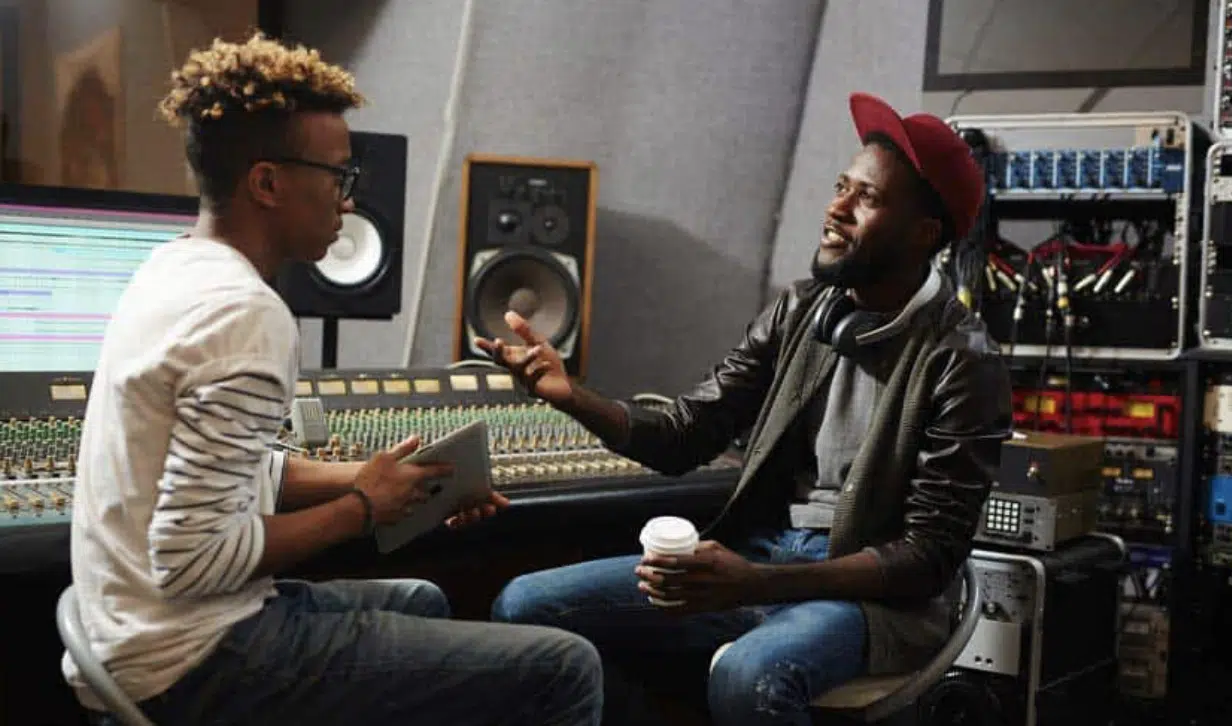
Fan engagement is the lifeblood of a successful music career.
Without it, even the most talented artists, like Kendrick Lamar, Marshmello, or Malaa, can struggle to gain traction.
Engaging your fans means more than just music promotion.
It’s about creating a dialogue and forming a bond.
Consider asking for their input on things like ideas for beats, who their favorite producer/artist is, or video ideas.
This involvement can make fans feel more invested in your career.
Remember, each interaction with a fan is an opportunity to turn them into a loyal supporter.
Make sure to:
- Show your appreciation for their support
- Be authentic in your interactions & posts
- Take the time to engage with them individually
This personal touch can go a long way in building a strong fan base.
Trust me, they’ll remember those moments and try to spread your music just as much as you do.
-
Record Labels & Music Marketing
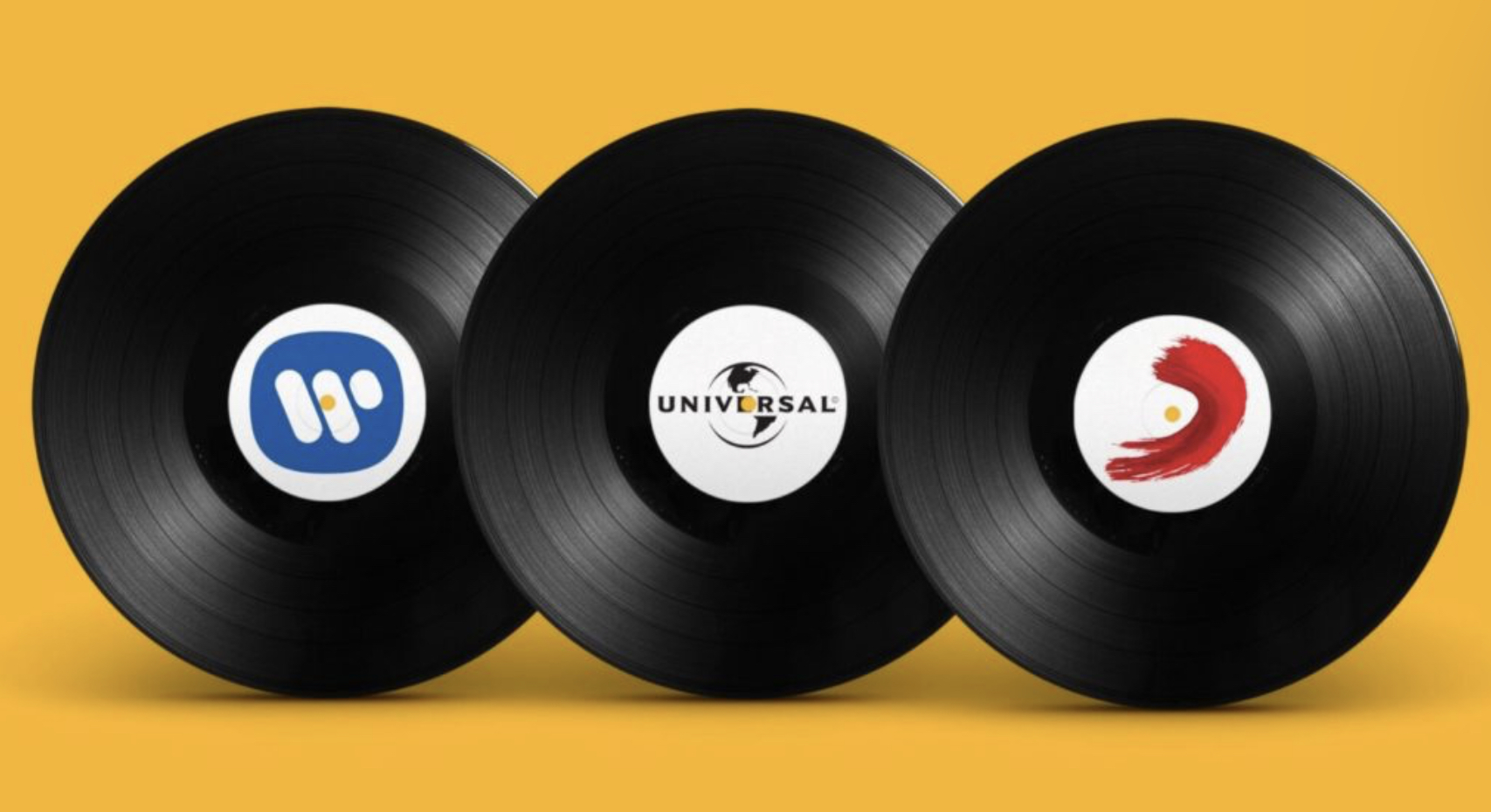
Record labels have traditionally played a significant role in music marketing 一 leveraging their resources and networks to promote an artist’s music.
However, the digital age has seen a shift in this dynamic.
Record labels still provide valuable support in terms of funding, distribution, and access to industry connections, sure.
However, artists now have more tools at their disposal to take charge of their own marketing.
This shift has seen a rise in artists successfully promoting their music independently.
That being said, the support of a record label in a marketing campaign can still be beneficial (particularly for emerging artists).
The label’s established presence and reputation can help amplify an artist’s reach and lend credibility to their music.
Whether you choose to sign with a label or be one of the many successful independent artists, it’s important to understand the role a label plays in music marketing and how to effectively work with/without one.
Press Kits & Media Outlets
Now, let’s delve into one of the most crucial tools of music marketing: the press kit.
Paired with the power of media outlets, a well-structured electronic press kit can be your golden ticket to widespread recognition.
-
The Power of the Electronic Press Kit
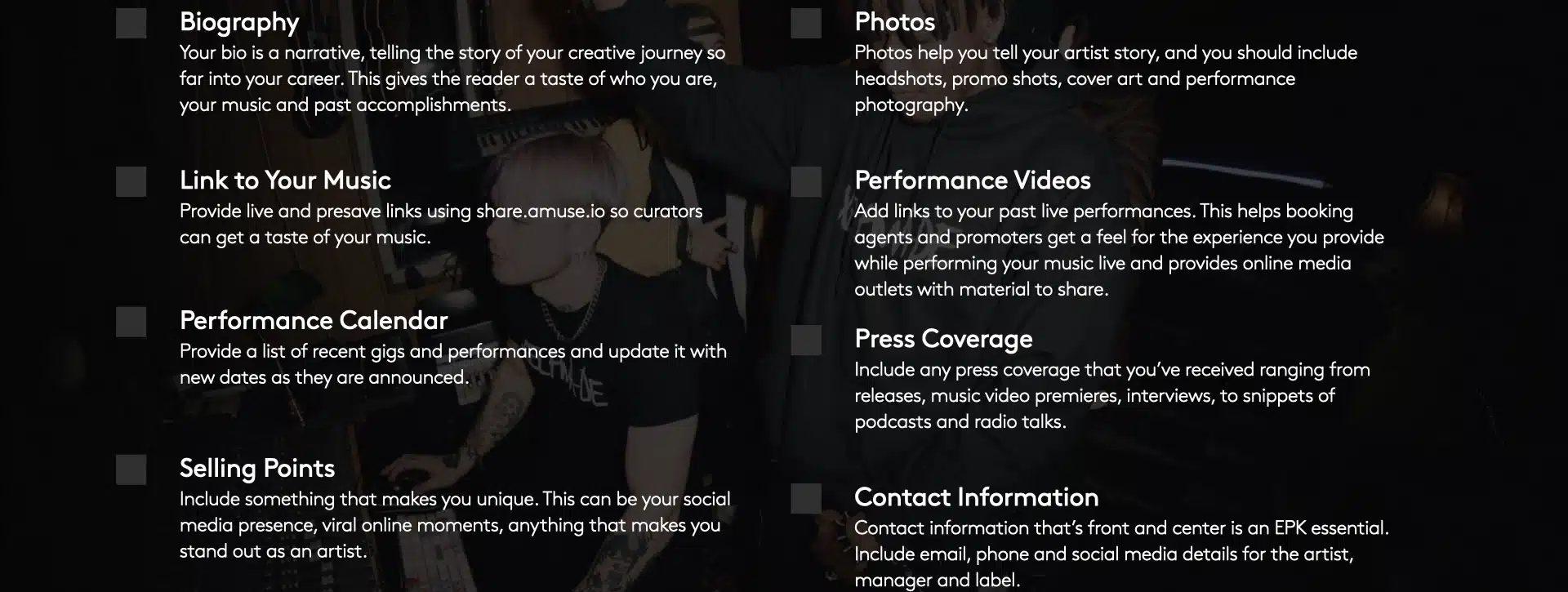
Use this as your EPK checklist.
In the music industry, an Electronic Press Kit, or EPK, can serve as a powerful tool for promoting your music.
Essentially a digital resume, an EPK provides a comprehensive overview of your work and accomplishments as an artist.
An EPK typically includes:
- Your biography
- Discography
- Press photos
- Polished beats
- Full songs
- Music videos
- Press coverage
- Tour dates
- Contact information
This information can be incredibly valuable to journalists, bookers, and promoters 一 making their job easier and increasing your chances of securing coverage or bookings.
One of the advantages of an EPK is that it can be easily updated and distributed.
When you release new music, drop a beat, receive notable press coverage, or have an exciting announcement, you can quickly update your EPK and send it out to relevant parties.
This ensures that they always have the most up-to-date information about your career.
When it comes to music marketing, a well-crafted EPK can leave a lasting impression and help set you apart from other artists.
It provides an opportunity to showcase your unique identity and story.
This can help forge a deeper connection with your audience and industry professionals.
-
Utilizing Media Outlets for Wider Reach

Media outlets, from music blogs to radio stations, can play a significant role in promoting your music.
They have the potential to reach a broad audience, which can help you gain exposure and attract new loyal fans.
Start by identifying media outlets that align with your genre, sub-genre, and audience.
Tailor your pitches to each outlet.
It should demonstrate your familiarity with their content and explain why your music would be a perfect fit.
Don’t be discouraged by rejections or non-responses.
It often takes persistence and a compelling story to capture the attention of busy journalists and editors.
Remember, each successful placement can open the door to more opportunities.
Finally, consider hiring a publicist or PR agency if your budget allows.
These professionals have established relationships with media outlets and can help you secure more high-profile coverage.
-
Email: A Key Music Marketing Strategy

Email marketing can be a highly effective tool for promoting your music.
Unlike social media platforms, where your posts may get lost in a sea of content, email allows you to reach your fans directly in their inbox.
#1. To get started with email marketing, you’ll first need to build an email list.
This can be done by offering a free download or access to exclusive products or production techniques in exchange for an email address.
Make sure to comply with privacy laws and clearly explain how you will use their information.
#2. Crafting compelling emails is also crucial.
Your emails should be visually appealing, easy to read, and provide value to the reader.
This could be in the form of exclusive content, personal updates, or early access to new releases.
#3. Consistency is key in email marketing.
Sending regular emails can help keep you on your fans’ minds.
You really want to make sure that you’re not slacking in the consistency department, I cannot emphasize this enough.
NOTE: Be careful not to bombard your fans with too many emails, as this can lead to unsubscribes.
When releasing new music, email marketing can be an invaluable tool.
It allows you to reach your fans directly, ensuring they are aware of your new release.
Start by announcing the release date in advance. This builds anticipation and allows fans to mark the date in their calendars.
You could also provide a sneak peek or exclusive content to further increase excitement (which I highly recommend).
-
Playlists & Playlist Curators
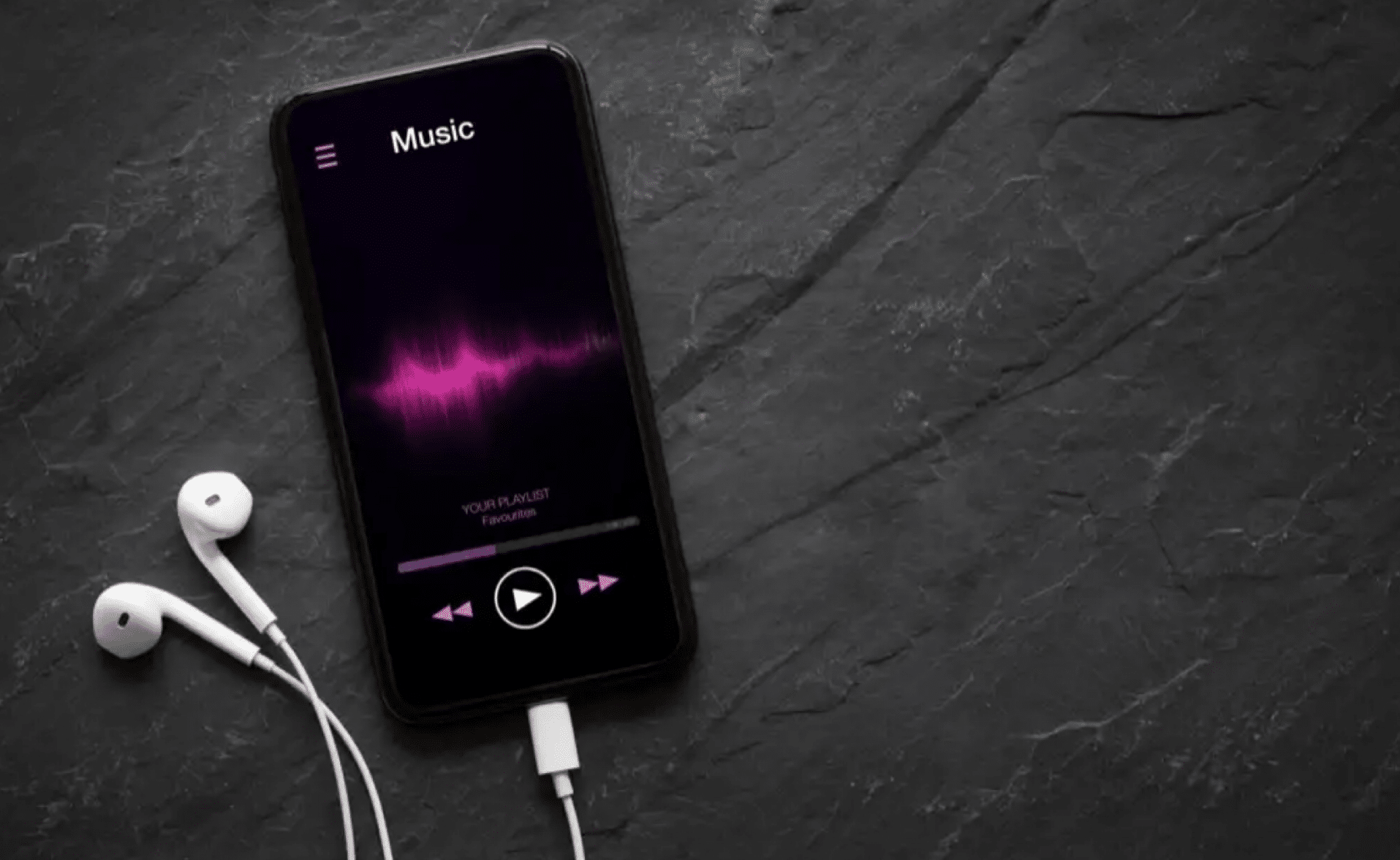
Playlists have become a significant means of music discovery in the digital age.
Whether curated by streaming platforms, independent curators, or users, playlists can expose your music to a new audience and increase your streams.
As well as seriously enhance your music marketing process.
To get your music featured on playlists, you’ll need to pitch your songs.
This involves submitting your music to playlist curators for consideration.
Tailor your pitch to show why your music is a good fit for their playlist and provide any relevant information that might make your music stand out.
Building relationships with playlist curators can also be beneficial.
By engaging with them and showing genuine interest in their work, you increase the likelihood of being considered for their playlists.
Don’t forget to create and share your own playlists as well.
This not only gives you another platform to share your music but also allows you to curate a unique listening experience for your fans.
Include your own songs alongside those of similar artists to help your music be discovered.
-
Budgeting & Financing Your Music Marketing Efforts
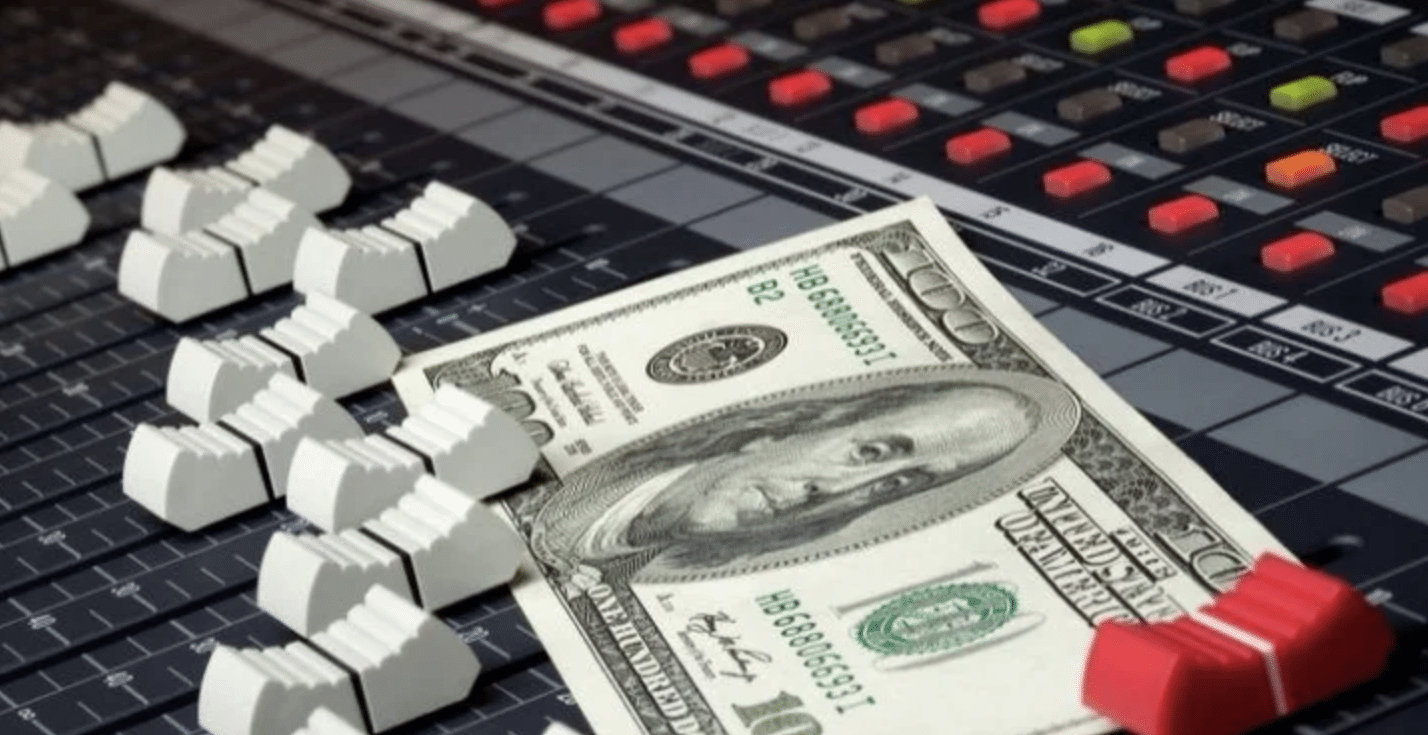
A functional marketing budget is crucial for guiding your marketing efforts and measuring their effectiveness.
This budget should account for all costs associated with promoting your music, such as:
- Advertising
- Hiring a publicist
- Website maintenance
- Social media promotions
- Touring expenses
Begin by identifying your goals and aligning them with specific marketing activities.
Then, estimate the costs of these activities and allocate funds accordingly.
Keep in mind that your budget should be flexible…
As you test different strategies, some may prove more effective than others and warrant a larger portion of the budget.
It’s crucial to track your spending and the results of your marketing efforts.
This allows you to understand what’s working and what isn’t and to make informed decisions about where to invest your money.
As well as your overall music marketing plan, naturally.
NOTE: Tools like Google Analytics and social media insights can provide valuable data for this purpose.
Music Marketing: Final Thoughts
As you’ve learned throughout this article, music marketing is imperative to getting your music the attention it truly deserves.
It’s an intricate weave of strategic planning, understanding the landscape, harnessing various tools, and most importantly, creating authentic connections with your fans.
Now, the journey to music marketing mastery doesn’t end here.
Much like your musical skills, it needs continuous learning and adaptation.
As part of that journey, we want to support you with a valuable resource that’ll help you create top-notch beats while you strategize your music marketing campaign.
To help you on this journey, we’re offering you the highly renowned Beatmaker Blueprint (Free Teaser Pack).
It contains a whopping 449 samples, loops & MIDIs!
This legendary pack is designed to take your beats to the next level (free of charge and 100% royalty-free).
Not only will you be able to produce better music, but you’ll also have more quality content to market.
In the world of music marketing, it’s about creating something worth sharing, and then effectively sharing it.
We hope this article has illuminated the path of music marketing for you.
Remember, your journey is unique, and success comes from understanding your audience, leveraging the right tools, and most importantly, staying true to your musical vision.
Until next time…







Leave a Reply
You must belogged in to post a comment.